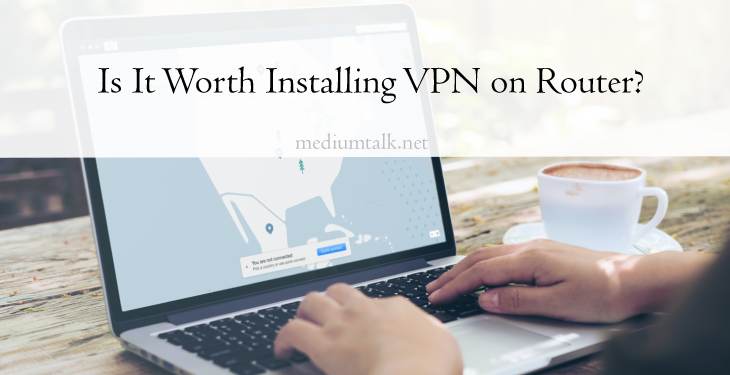In today’s digital age, cybersecurity has become more important than ever. Cyberattacks and data breaches are on the rise, and it has become essential to secure your internet connection. One of the most effective ways to do this is by using a Virtual Private Network (VPN). VPNs encrypt your internet traffic, making it difficult for anyone to intercept or access your data. While VPNs can be installed on individual devices, installing a VPN on your router can provide additional benefits. In this article, we will discuss whether it is worth installing a VPN on your router.

Pros of Installing VPN on a Router
Securing all devices connected to the router: Installing a VPN on your router means that all the devices connected to the router will be secured by the VPN. This means that any device that connects to the your internet service via the router will automatically be encrypted, providing an additional layer of security. This is particularly useful for devices that do not have a built-in VPN client, such as smart TVs, gaming consoles, and IoT devices.
No Need to Set Up Vpn on Individual Devices
Another advantage of installing a VPN on your router is that you do not need to set up a VPN on each device. This can save you a lot of time and effort, especially if you have multiple devices that need to be secured. With a VPN installed on your router, you can easily connect to the VPN server and protect all your devices simultaneously.
Security for Devices That Do Not Have a Built-in Vpn Client
Devices that do not have a built-in VPN client can be difficult to secure. However, by installing a VPN on your router, you can provide an additional layer of security for these devices. This can include devices such as smart home appliances, which are increasingly vulnerable to cyberattacks.
Cons of Installing VPN on a Router
Slower internet speed: One of the main disadvantages of installing a VPN on your router is that it can slow down your internet speed. When you use a VPN, your internet traffic is encrypted and routed through the VPN server. This can increase the latency and reduce the speed of your internet connection. The effect is particularly noticeable when you connect to a server that is geographically far away from your location.
Limited Access to Websites and Services That Block Vpn Traffic
Another disadvantage of installing a VPN on your router is that it can limit your access to certain websites and services. Some websites and services block VPN traffic, which means that you may not be able to access them when you are connected to a VPN. This is particularly true for streaming services such as Netflix, which has implemented strict measures to block VPN traffic.
In conclusion, whether or not it is worth installing a VPN on your router depends on your individual needs and preferences. Installing a VPN on your router provides added security for all devices connected to it, but it can also slow down your internet speed and limit your access to certain websites and services. If you prioritize security and have a lot of devices that need to be secured, then installing a VPN on your router may be worth it. However, if you require fast internet speed and need to access websites and services that block VPN traffic, then you may want to consider other options. Ultimately, it’s important to weigh the pros and cons and choose the option that best suits your needs.
